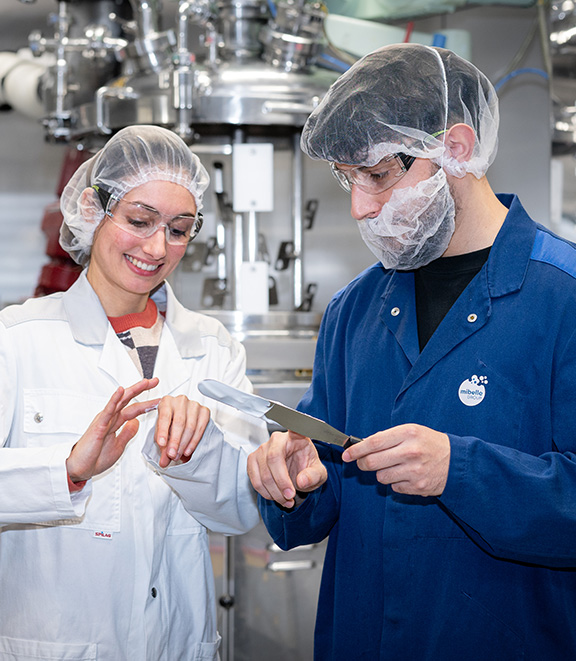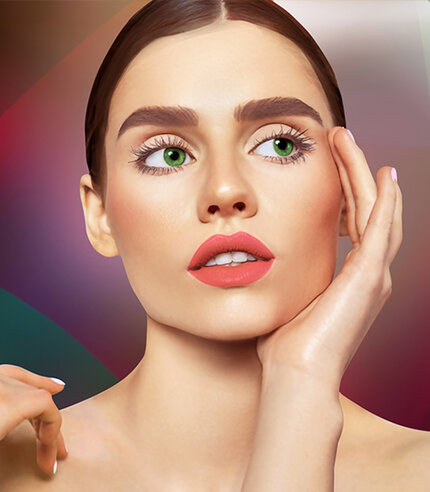Inside our bodies and in every cell, biological clocks are continuously ticking away that tell us whether it’s daytime and we should be active or whether it’s night-time and we should be sleeping. These internal clocks have developed and evolved over the course of 3 billion years of evolution.
Cells in our eyes regulate our body clock
In humans the sleep-wake rhythm is mainly controlled by special cells in our eyes called melanopsin cells. These cells were only discovered in 2007. They react very strongly to the blue wavelengths in sunlight and modulate our internal rhythm, which is also known as the circadian rhythm. When blue light no longer hits these cells in the eye, the body produces the sleep hormone melatonin. Melatonin in the blood switches the entire body to night mode; we feel tired and fall asleep. It is only in recent years that researchers have been exploring the biochemical mechanisms connected with these processes. In 2017 the Nobel Prize was awarded for discoveries in this field.
Sleep disorders cause common illnesses
Blue light thus controls our internal body clock. However, our modern lifestyle is very different to when we once lived in caves. Prehistoric humans used to spend most their time outside in daylight and returned to their caves at night. Nowadays the majority of people spend all day in the office and receive very little exposure to blue light. At night we are conversely bombarded with far too much blue light, mainly via electronic devices such as TVs, laptops, iPads and mobile phones. This shift in exposure disturbs our natural circadian rhythms, causing sleep disorders and a sleep-deprived society. Experts postulate that this lack of sleep plays an important role in the increase in widespread diseases such obesity, diabetes, cardiovascular disease and depression. The solutions for alleviating these sleeping problems are actually very simple:
1. Get plenty of blue light outside over lunchtime
2. Do not use any electronic devices for 2 hours before going to bed at night
Body fat also has a biological clock
Another emerging theory is that blue light also influences our fat depot. Researchers recently discovered that fat cells shrink when exposed to blue light. Surprisingly, they found the same light-sensitive photopigment in subcutaneous fatty tissue which is contained in the retina of the eye: melanopsin. This could mean that our subcutaneous fat is broken down in summer by lots of blue light and vice-versa the lack of light in winter results in increased fat deposits.
Sleep has an active anti-ageing effect
Chronic sleep deprivation also has other effects such as accelerating the ageing process. During deep sleep, our bodies produce growth hormones and activate the immune system. Skin also regenerates overnight and we wake up looking “younger” than when we went to bed.
Blue light and skin
Sleep researchers and chronobiologists agree how important blue light is during the day and how bad it is for us at night. However, there is disagreement between cosmetic scientists and medical experts about the effects of blue light on the skin. It is a well-known fact that ultra-violet light (UV) damages the skin and can cause sunburn and skin cancer. While visible blue light has less energy and is therefore less dangerous, there is speculation that chronic exposure of the skin resulting from use of electronic devices could cause skin ageing. During our own research at Mibelle Biochemistry, we were able to show that exposing skin cells (keratinocytes and fibroblasts) to blue light resulted in oxidative damage and thus initiated the skin ageing process. However, the oxidative stress molecules produced during this process were able to be largely neutralised with an active agent that captures free radicals.
More research is needed to determine the extent to which our skin needs protecting against blue light. However, there is no doubt that getting sufficient blue light at the right time is essential for our sleep rhythms and for society.








